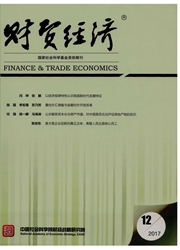

 中文摘要:
中文摘要:
本文结合货币主义存量流量一致分析框架和未定权益分析法,从兼容宏观审慎中宏微观与时间截面两组维度的角度,研究了资产价格波动冲击下中国银行网络抗毁性。研究表明:(1)网络自然连通度能够较好地反映中国银行体系网络抗毁性程度的动态变化。后危机时代中国银行体系网络的脆弱性程度仍不容忽视。(2)网络抗毁性特征在不同冲击分配策略下的异质风险场景中不尽相同。相对不同属性资产的冲击而言,固定资产价格和银行部门股价的波动对网络抗毁性会形成较强冲击。在选择性冲击分配策略中的强强分配子策略下,中国银行体系的网络抗毁性程度最差,其抗毁性承受能力比对全部节点等分配冲击时更为脆弱。本研究对于复杂金融网络的系统性风险管理具有重要意义,并可为宏观审慎建模和监管提供有益参考。
 英文摘要:
英文摘要:
Based on the stock-flow consistent framework and contingent claims analysis, and from two aspects, which are macro and micro view containing macro-prudential regulation and time section, this paper studies the invulnerability of China's banking system under the asset price fluctuation. The study shows that: (1)the natural connectivity of network can well reflect the dynamic change of China's banking system invulnerability, and the vulnerability in post-crisis era is also very important in China; (2)the characteristic of network's invulnerability is different in heterogeneous risk situation of different impact allocation strategy. Compared to the impact of different asset attributes, the fluctuation of fixed asset price and banking sector stock price has stronger impact on invulnerability. In the meantime, the invulnerability of China's banking system is the worst under strong allocation sub-strategy of selective impact allocation. The study is important for systemic risk management of complex financial network, and is useful for macro-prudential modeling and regulation.
 同期刊论文项目
同期刊论文项目
 同项目期刊论文
同项目期刊论文
 期刊信息
期刊信息
